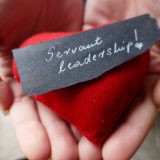Do you want to make self-care part of your life? Here are five ways to get started.
1. Assess Your Self-Care
Note: The 9 Lies that Will Destroy Your Marriage contains several assessments. If you have the book, take the Self-Care Assessment in chapter five and look at your results. If you haven’t read the book, consider the ways you practice self-care for your body, your mind, your emotions, and your spiritual growth.
Do you see any patterns?
Are there some areas where you are doing well?
Are there other areas where you fall down?
Identify priorities. Is there a poorly tended life area that requires immediate attention?
Self-care needs to be consistent and repeatable. What can you do regularly to care for yourself?
2. Share and Compare
After you and your spouse have both done your own assessments and analyzed the results, you can compare notes with each other.
Discuss any insights you saw, or decisions you made, after taking the test and weighing the results. If your spouse is open to it, discuss where you see each other’s strengths and weaknesses in each of the four major self-care areas. Discuss whether you generally feel more encouraged and supported by your spouse on your self-care journey, or more discouraged and challenged. Try to stay with sharing information and observations rather than criticizing or trying to change your partner.
It might also be helpful for each partner to discuss ways in which their practice of self- care (or lack of practice) has been influenced by the values of our culture; the impact of their family and upbringing; and what their friends, coworkers, and other associates say and do about self- care.

3. Talk about Personal Responsibility
This article explores the lie that your spouse is supposed to meet your needs, and the truth that each partner and the marriage are best served when each practices self-care.
Discuss with your partner some of the ideas explored in this chapter: movies and song lyrics that promote the “You Must Meet Each Other’s Needs” lie, thoughts about various wedding rituals you’ve seen and any suspect theological messages, your understanding of the need for self-care, and your reaction to the ideas on personal responsibility.
4. Make a Commitment You Can Keep
Fully exercising caring for self means that I take full responsibility for making sure I am well cared for mentally, physically, spiritually, and emotionally. I can’t blame anyone else for the bad things I feel and think.
In the past you may not have understood s elf- care or practiced it as successfully as you could. Now that you’re clear about that, what can you do to become more whole and healthier in all areas?
Discuss the potential ways in which exercising personal responsibility and caring for self can contribute to creating a healthier and more loving environment for you and your spouse.
5. Take Time for Quiet Reflection
Most people live their lives in a tumultuous state that one sociologist described as “continuous partial attention.” That means they’re always busy and buzzing, but never quiet, focused, and still.
If you want to learn to understand your emotions, some time alone can help. Get away for an hour or a morning, leaving behind your cell phone or other potential digital distractions. Get to know yourself. Spend some time reflecting about and exploring your own emotions.
The more you understand your own emotions and become comfortable with emotions in general, the more you and your spouse can enjoy a relationship overflowing with rich emotional sharing and satisfying intimate connection.
Taken from 9 Lies that Will Destroy Your Marriage by Robert Paul and Greg Smalley. Copyright © 2020. Used by permission of Focus On the Family. All rights reserved. Represented by Tyndale House Publishers, Inc.

Lies about marriage are rampant in our culture and the church. They’re killing marriages. But the corresponding truths can strengthen marriages and even save the most troubled relationships. In this book, marriage experts Greg Smalley and Robert Paul identify the lies, explain how they work to destroy marriages, and reveal the truths that not only can improve marriages but rescue those that are floundering.
Hope Restored, the renowned crisis marriage program created for Focus on the Family, is the basis for the discovery and understanding of these specific lies and their impact. Dr. Greg Smalley, a general marriage expert, and Robert Paul, the therapeutic director of a program that resuscitates nearly dead marriages, bring an unusual but powerful combination of perspectives that restore hope and healing in any marriage.
9 Lies That Will Destroy Your Marriage includes several self-tests to help you assess the extent to which your own marriage has been affected by each of the nine lies.










What do you think?